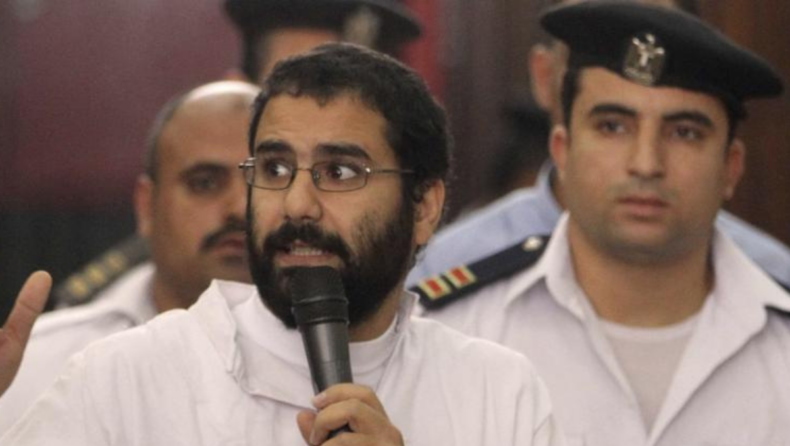According to a family member, jailed Egyptian-British activist Alaa Abd el-Fattah has extended his five-month hunger strike, eliminating his meagre intake of solids as part of his effort to protest his arrest.
Some rights groups argue his case demonstrates that Western countries, notably Britain and the United States, put national interests ahead of promoting freedom. He was a key voice in the 2011 revolt that ousted President Hosni Mubarak’s 30-year tenure.
To keep alive, Egypt’s most visible rebel previously used only one piece of fibre every week, an apple or a cucumber, as well as only 100 calories of fluids per day, according to his sister Sanaa Seif, who visited him on Tuesday.
“During the visit he was leaning on the glass partition, he was struggling but is trying to keep it together,” she explained.
His mother, Laila Soueif, voiced anxiety in June that her son’s health may deteriorate quickly.
On April 2, Abd el-Fattah launched a hunger strike to protest his arrest and jail conditions. He was sentenced to five years in prison in December on accusations of disseminating fake news after posting a social media message regarding a prisoner’s death. He admits to retweeting the post, but he believes his penalty is harsh.
Egyptian officials did not answer to Reuters’ phone calls seeking information on Abd el-situation, Fattah’s although they did say he was receiving meals and was transferred to a better-equipped jail earlier this year.
The Egyptian government has supported court rulings against foreign criticism, particularly the conviction of Alaa Abd el-Fattah.
According to his sister, neither Abd el-Fattah nor his family anticipate Egypt, a close ally of the United States, Britain, and other Western countries, to free him very soon.
“We know for a fact that Alaa has become a well-known case to other governments so it’s extremely frustrating that we did our part but we aren’t achieving results, and that means that these governments are not doing their part,” Seif said.
She said she raised Abd el-case Fattah’s with a number of individuals, including members of the British parliament and the Foreign Office, only to be assured that Britain was “pushing to the highest level for consular access.”












